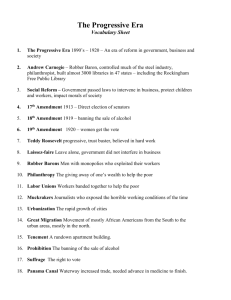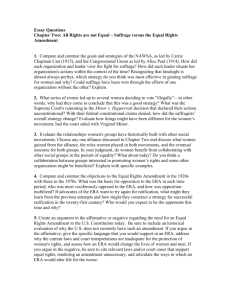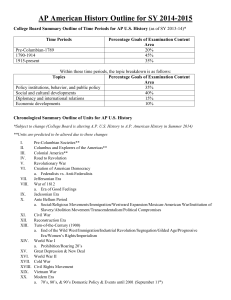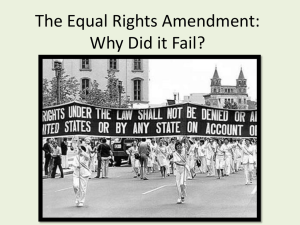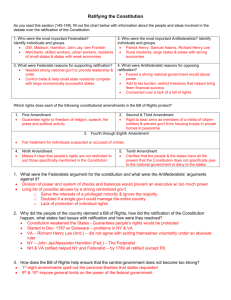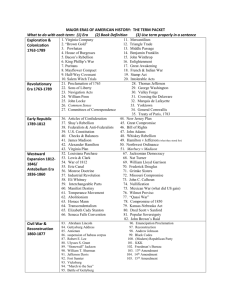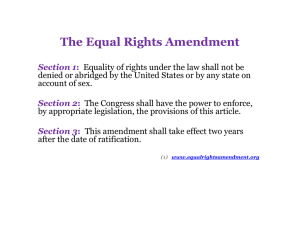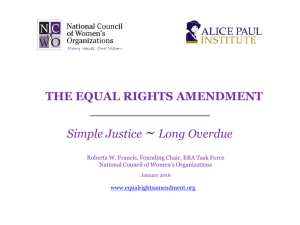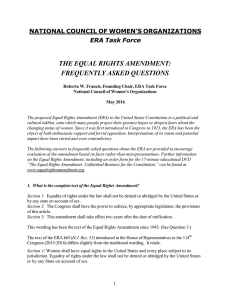WHY WE NEED THE EQUAL RIGHTS AMENDMENT
advertisement
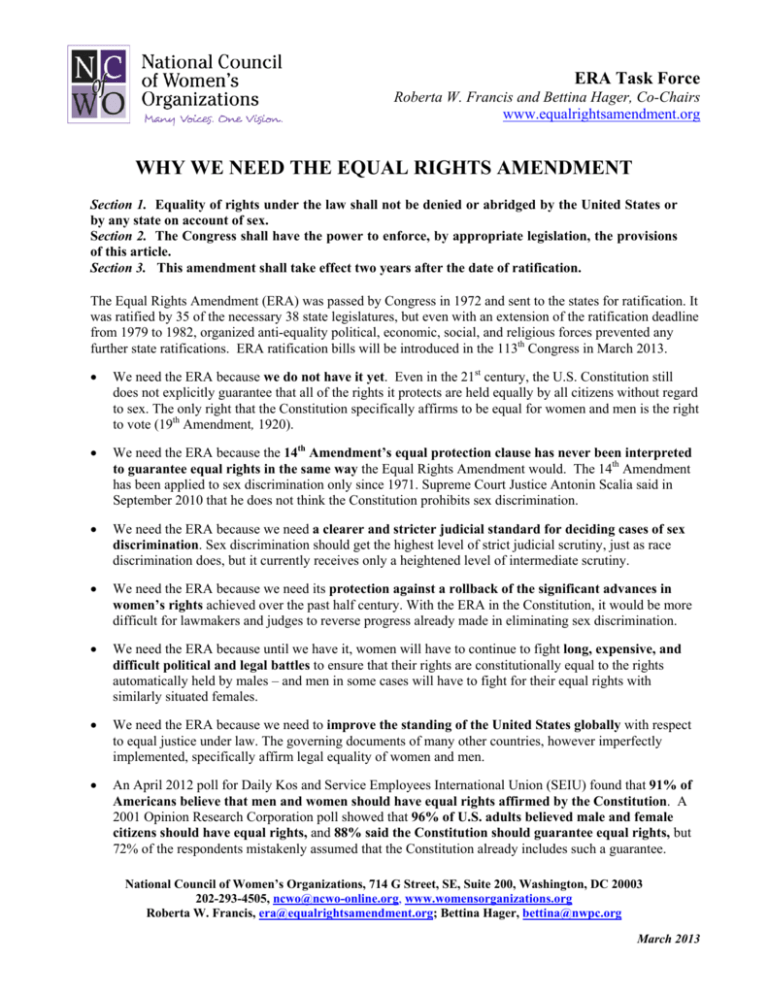
ERA Task Force Roberta W. Francis and Bettina Hager, Co-Chairs www.equalrightsamendment.org WHY WE NEED THE EQUAL RIGHTS AMENDMENT Section 1. Equality of rights under the law shall not be denied or abridged by the United States or by any state on account of sex. Section 2. The Congress shall have the power to enforce, by appropriate legislation, the provisions of this article. Section 3. This amendment shall take effect two years after the date of ratification. The Equal Rights Amendment (ERA) was passed by Congress in 1972 and sent to the states for ratification. It was ratified by 35 of the necessary 38 state legislatures, but even with an extension of the ratification deadline from 1979 to 1982, organized anti-equality political, economic, social, and religious forces prevented any further state ratifications. ERA ratification bills will be introduced in the 113th Congress in March 2013. We need the ERA because we do not have it yet. Even in the 21st century, the U.S. Constitution still does not explicitly guarantee that all of the rights it protects are held equally by all citizens without regard to sex. The only right that the Constitution specifically affirms to be equal for women and men is the right to vote (19th Amendment, 1920). We need the ERA because the 14th Amendment’s equal protection clause has never been interpreted to guarantee equal rights in the same way the Equal Rights Amendment would. The 14th Amendment has been applied to sex discrimination only since 1971. Supreme Court Justice Antonin Scalia said in September 2010 that he does not think the Constitution prohibits sex discrimination. We need the ERA because we need a clearer and stricter judicial standard for deciding cases of sex discrimination. Sex discrimination should get the highest level of strict judicial scrutiny, just as race discrimination does, but it currently receives only a heightened level of intermediate scrutiny. We need the ERA because we need its protection against a rollback of the significant advances in women’s rights achieved over the past half century. With the ERA in the Constitution, it would be more difficult for lawmakers and judges to reverse progress already made in eliminating sex discrimination. We need the ERA because until we have it, women will have to continue to fight long, expensive, and difficult political and legal battles to ensure that their rights are constitutionally equal to the rights automatically held by males – and men in some cases will have to fight for their equal rights with similarly situated females. We need the ERA because we need to improve the standing of the United States globally with respect to equal justice under law. The governing documents of many other countries, however imperfectly implemented, specifically affirm legal equality of women and men. An April 2012 poll for Daily Kos and Service Employees International Union (SEIU) found that 91% of Americans believe that men and women should have equal rights affirmed by the Constitution. A 2001 Opinion Research Corporation poll showed that 96% of U.S. adults believed male and female citizens should have equal rights, and 88% said the Constitution should guarantee equal rights, but 72% of the respondents mistakenly assumed that the Constitution already includes such a guarantee. National Council of Women’s Organizations, 714 G Street, SE, Suite 200, Washington, DC 20003 202-293-4505, ncwo@ncwo-online.org, www.womensorganizations.org Roberta W. Francis, era@equalrightsamendment.org; Bettina Hager, bettina@nwpc.org March 2013
